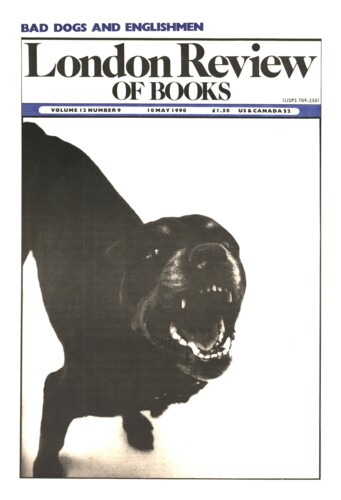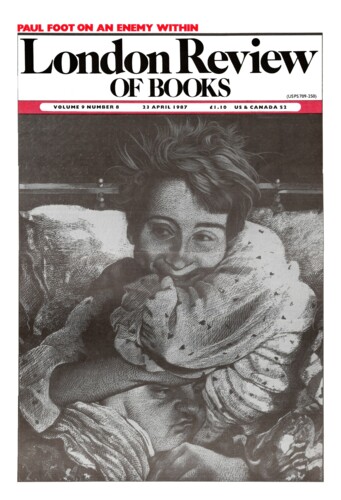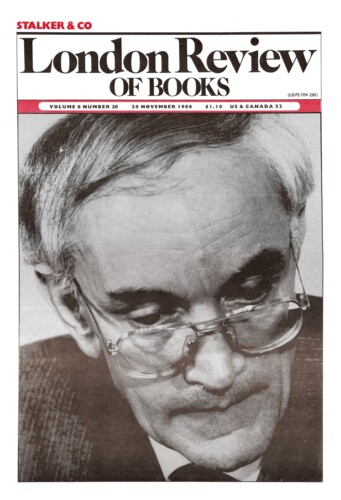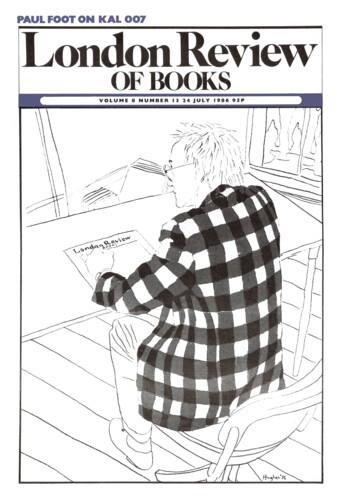Office Parties
Jose Harris, 10 May 1990
The Victorians, who idealised work, nevertheless reserved the palm of social esteem for persons whose private means enabled them to lead lives of pleasurable idleness. We in the late 20th century make a fetish of leisure and pleasure: yet for most of us status, self-regard, identity and personal relationships are inextricably bound up with access to paid employment. The youthful rentiers of the Drones Club have not died out, but somnolent afternoons in billiard rooms have given way to frenetic action in the City; the Bertie Woosters of yesteryear are now dealers in bonds and traders in futures, clocking in from nine to five. Possession of a private income still carries cachet (it is, after all, money), but much more so if held in tandem with a recognised salaried profession. Work and play, brutally estranged from each other by the early stages of industrialisation, have now reconverged through the medium of rituals such as business lunches, office parties, professional conferences, and all the mundane conviviality of daily working life. Royal princes, married women and the very rich all increasingly reject the once-coveted option of remaining outside the labour market, and honourable idleness is now segregated into that stretch of life known as retirement. Even strenuous pursuit of intellectual truth, at which some at least of the leisured class once excelled, is now no longer trusted and admired unless practised on a salary with a research assistant in a seat of higher learning.





